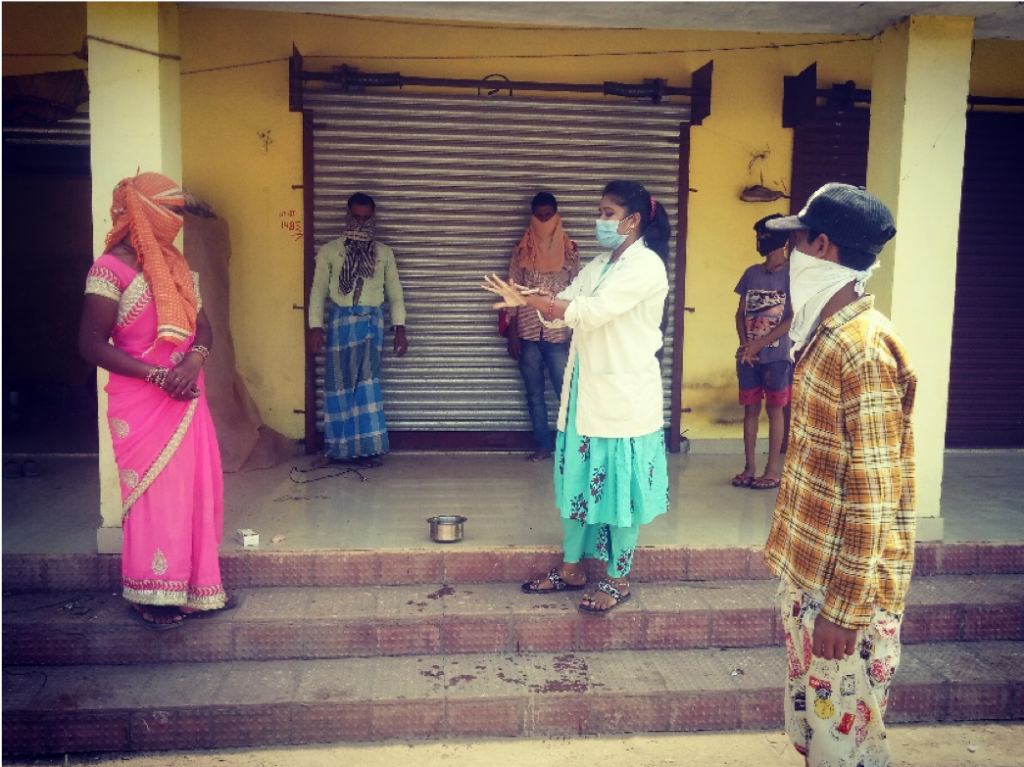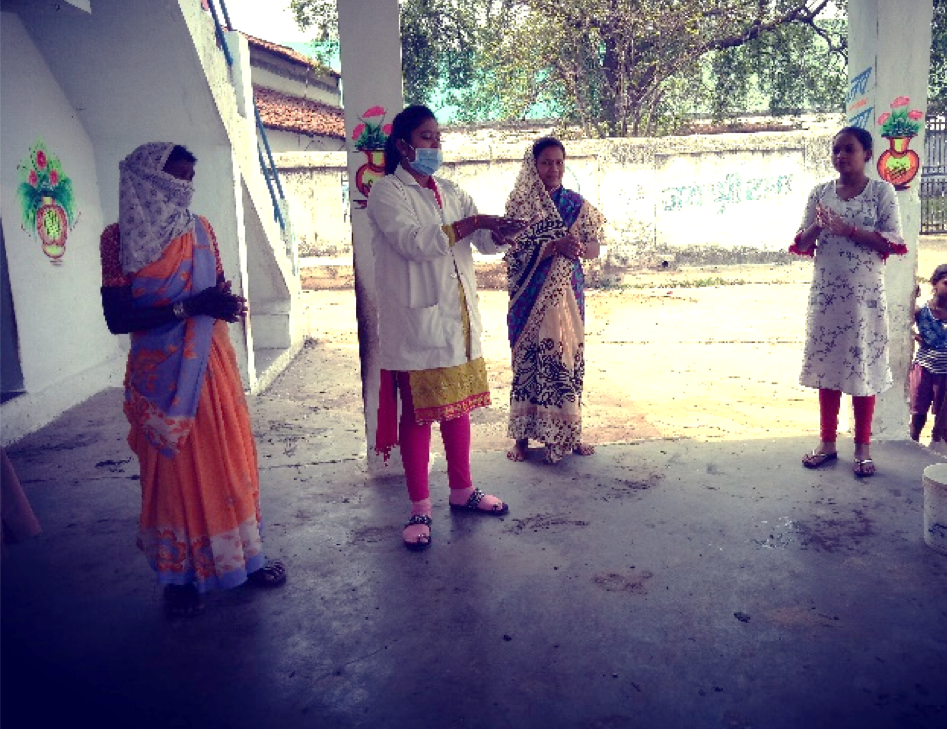Durg District, Chhattisgarh, India
Janki, a Community Health Officer (CHO) of Ayushman Bharat Health and Wellness Center (AB-HWC) Amleswar in Durg District of Chhattisgarh had one motto in life – to make her passion her profession. She went ahead and did exactly that by studying nursing and worked as a nurse for three years, till she came across another challenging opportunity – to lead a primary health care team of AB-HWC as a CHO as part of the prestigious Government of India initiative to bring comprehensive primary health care closer to the communities. Now with the world struggling to contain the COVID-19 pandemic, Janki felt she had a very important role to play for her community. She took this challenge head on and moved swiftly to try to protect her community.
Janki realized that if preventive measures were not taken quickly, it might be too late to take concrete actions to prevent the spread of COVID-19 in her area. So long before the coronavirus cases reached her state and the nationwide lock downs began, she started empowering her community with the guidance and support of Dr. Ashish Sharma, Block Medical Officer, Patan. She undertook awareness generation activities for her community on COVID-19. She was cognizant about the various myths and rumors circulating among the villagers regarding the disease, and ensured that she addressed those during her interactions. She also worked in tandem with members of the village government or panchayat to put up various wall paintings at strategic locations in the village as part of awareness generation. With the help of the local school children, she hosted community plays or nukkad nataks for awareness generation on COVID-19.

On announcement of nationwide lockdowns and guidelines on wearing masks in public places, Janki approached the members of the local self-government (panchayat) of Amleswar village to provide capital for preparation of home-made masks by the villagers. With the other frontline workers, she identified the local tailors or any other community member who could help in stitching the masks. This way the villagers were able to churn out nearly 5,000 masks in mere five days. Janki ensured that the masks were distributed on priority basis – first to the elders and those with pre-existing health conditions. She also trained her community on how to make hand sanitizers at home. With the help of the Panchayat Sachiv, the head of the village, she demarcated the entire area under AB-HWC Amleswar into different localities and hamlets. Twice in a week, these localities or hamlets were disinfected through bleaching solution prepared at the AB-HWC. This way, the entire area was disinfected within a month’s time.
Janki was trained by the US Agency for International Development-funded NISHTHA: Transforming Comprehensive Healthcare in India project implemented by Jhpiego on COVID-19. Quick to put her knowledge into action, Janki built the capacities of all the front line health care workers in her team. She was empowered with the right knowledge and skill set to take this challenge head on. She thought it was imperative to train them, as she alone could not visit every household of the community.

Further due to the restrictions towards regular activities, given the ban for large gatherings, Janki started going door-to-door for awareness generation, especially wherever the front line health workers were unable to go or were not available for a given locality. For the more rigid households, she escalated the issue to more influential members of the society like school teachers, local priest and panchayat officials. Earlier, there was a lot of resistance in the community for staying at home. But, as the number of cases started increasing elsewhere, people started listening to Janki. She particularly counseled the working male members of a household, who were used to spending most of their time outdoors. She educated them on ways to engage themselves while staying at home. In addition to manning the prevention front, Janki rigorously did follow-up visits to the home-quarantined villagers who had come from other states and monitored their signs and symptoms.
So, what gets her going even during these uncertain times?
“The villagers are glad that they can directly come to me first for any health related problem instead of going to higher level health centers. I still remember my interaction with the first patient who came to the AB-HWC. He still calls me and asks about my whereabouts. Everybody is happy that they can go to their local healthcare facility for any service. These people – be it women, young girls or even the elderly come and discuss even their personal problems with me. It is true that the healthcare workers are at maximum risk of contracting infection, but you cannot stop working as it is dangerous. If I do not go and visit these people, more rumors will circulate and people will stop doing what is right.”



